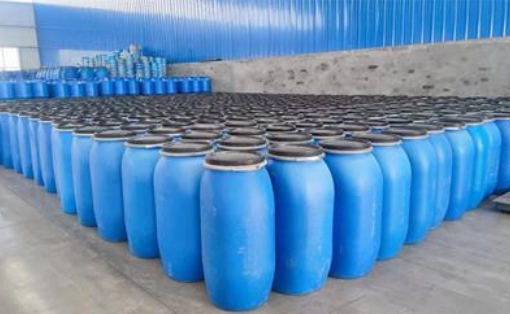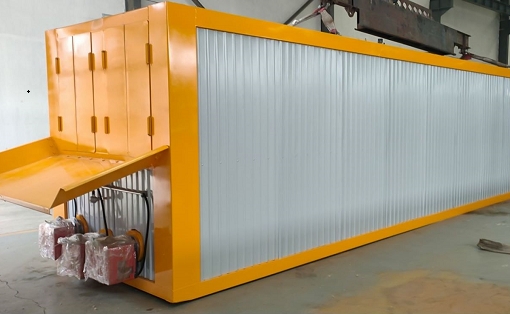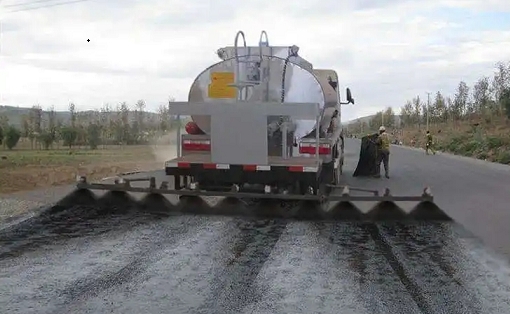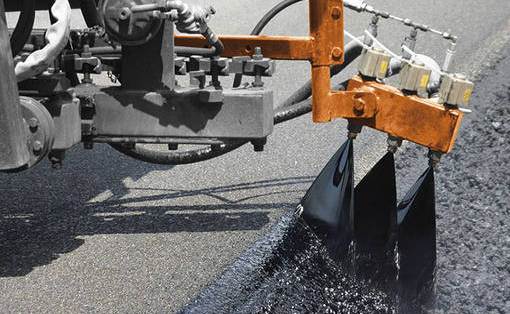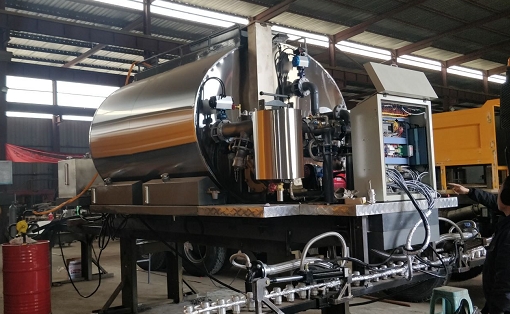Asphalt spreader is used to spread the penetration oil, waterproof layer and bonding layer of the bottom layer of asphalt pavement of high-grade highway. It can also be used for the construction of county and township highway oil roads with layered paving technology. It consists of a car chassis, an asphalt tank, an asphalt pumping and spraying system, a thermal oil heating system, a hydraulic system, a combustion system, a control system, a pneumatic system, and an operating platform.
Knowing how to properly operate and maintain the asphalt spreader can not only extend the service life of the equipment, but also enable the construction project to proceed smoothly. So what problems should the asphalt spreader pay attention to when working? The technicians of Gaoyuan Road Construction Machinery Equipment Co., Ltd. give you tips:
1). Before use, please check whether the position of each valve is accurate and make preparations before work. After starting the motor of the asphalt spreader, check the four thermal oil valves and the pressure gauge. After everything is normal, start the engine and the power take-off starts to work. Test the asphalt pump and circulate for 5 minutes. If the pump head shell is hot, slowly close the thermal oil pump valve. If the heating is insufficient, the pump will not turn or make noise. In this case, the valve needs to be opened to continue heating the asphalt pump until it can operate normally. During the working process, the asphalt liquid must be kept at a working temperature of 160~180℃, and it cannot be filled too full (pay attention to the liquid level pointer during the injection of asphalt liquid, and check the tank mouth at any time). After the asphalt liquid is injected, the filling port must be closed tightly to prevent the asphalt liquid from overflowing during transportation.
2). During use, asphalt may not be pumped in. At this time, it is necessary to check whether the interface of the asphalt suction pipe is leaking. When the asphalt pump and pipeline are blocked by solidified asphalt, a blowtorch can be used for baking, and the pump must not be forced to turn. When baking, care should be taken to avoid directly baking the ball valve and rubber parts.
3). When spraying asphalt, the car should be driven at a low speed. Do not step on the accelerator hard, otherwise it may cause damage to the clutch, asphalt pump and other components. If 6m wide asphalt is spread, pay attention to obstacles on both sides at any time to prevent collision with the spreading pipe. At the same time, the asphalt should be kept in a large circulation state until the spreading work is completed. After the work is completed every day, if there is any remaining asphalt, it must be returned to the asphalt pool, otherwise it will solidify in the tank and cannot work next time.
4). In addition, the emulsifier must also pay attention to daily maintenance:
1. The emulsifier and delivery pump and other motors, agitators, and valves should be maintained daily.
2. The emulsifier should be cleaned after work every day.
3. The speed regulating pump used to control the flow should be regularly tested for accuracy, and adjusted and maintained in time. The asphalt emulsifier should regularly check the matching clearance between its stator and rotor. When the minimum clearance specified by the machine cannot be reached, the stator and rotor should be replaced.
4. If the equipment is out of use for a long time, the liquid in the tank and pipeline should be emptied (the emulsifier aqueous solution should not be stored for a long time), the hole covers should be tightly closed, kept clean, and the running parts should be filled with lubricating oil. When it is used for the first time or when it is used again after a long period of inactivity, the rust in the tank should be removed, and the water filter should be cleaned regularly.
5. Regularly check whether the terminal in the electric control cabinet is loose, whether the wires are worn during shipment, and remove dust to avoid damage to the machine parts. The frequency converter is a precision instrument. Please refer to the instruction manual for specific use and maintenance.
6. There is a heat transfer oil coil in the emulsifier water solution heating stirring tank. When injecting cold water into the water tank, the heat transfer oil switch should be turned off first, and then the switch should be turned on to heat after adding the required amount of water. Pouring cold water directly into the high-temperature heat transfer oil pipeline can easily cause the weld to crack.





